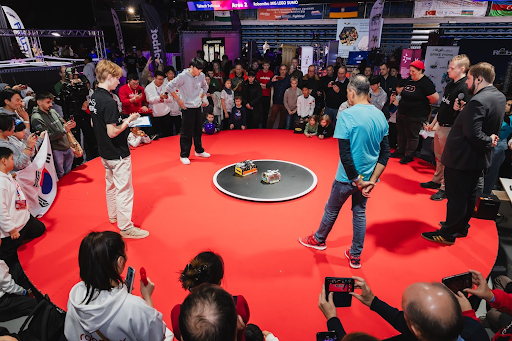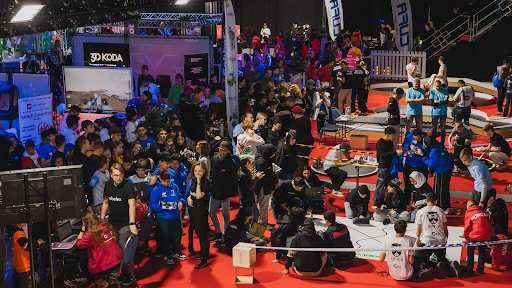Nathan Metsala of Robotex: Engineering the Future

Estonia, the tiny Baltic nation already known for spawning Skype, TransferWise (now Wise), and Starship Technologies is quietly exporting its next big idea: a grassroots robotics education movement designed to create millions of young engineers around the world.
Meet Robotex International, the nonprofit that's turning engineering into an esport. What started 25 years ago as a university project in Tallinn has grown into a global network that now reaches more than 100,000 students annually across dozens of countries and it's scaling fast.
"Our mission is simple," says Nathan Metsala, CEO of Robotex International. "We want to make engineering education as popular and accessible as sports or music."
The model works: Host a high-energy, festival-style event, bring together thousands of students from ages 5 to 2, and challenge them to build fully autonomous robots that compete in real-time obstacle courses, races, and tasks. No remote controls allowed. No code, no win.
"We're teaching true autonomy, the kind that powers self-driving cars, drones, and delivery robots," says Metsala. "This isn't playtime. This is futureproofing."
Robotex isn't just running competitions, it's building an educational platform and global franchise. Local partners license the format, adapt it to their culture, and receive support to launch scalable tech education events. That means no bloated central team or heavy logistics, just blueprints, code, and training.
In 2024, Robotex doubled its footprint. It hosted events across Europe, South Asia, and the Middle East, including large-scale activations at the American University of Kuwait, where more than 70% of participants were women, an anomaly in engineering circles.
That local impact is attracting big names. Starship Technologies, the autonomous delivery company founded by Skype co-founders, signed on as a major sponsor. "We're aligned in our belief that robots aren't the future, they're the present," Metsala says. "Starship sees Robotex as a long-term pipeline for autonomy talent."

Another key backer is Stoneridge Electronics, a U.S.-based component manufacturer. Their partnership bridges the gap between education and real-world engineering tools, one of Robotex's core differentiators.
"Most countries teach patriotism through history books," Metsala says. "We're doing it through AI and robotics. It's a national security strategy disguised as an education system."
The model is being watched by other governments, especially in regions where youth unemployment is high and STEM skills are in demand. Robotex offers something few nonprofits can: an open-source education framework that delivers immediate hands-on outcomes with no expensive labs or fancy campuses required.
While the edtech world has largely gone digital, Robotex is doubling down on physical computing. Every robot is built from scratch, programmed in real code, and tested in real-world conditions. Kids don't just learn syntax they learn problem-solving, mechanics, and electronics.
"We're not teaching them how to use an app. We're teaching them how to build one and the robot it runs on," Metsala says.
The team keeps motivation high by giving out real prizes think PlayStations, 3D printers, drones and creating a competitive atmosphere that feels more like a gaming tournament than a classroom. The result? 60% of participants go on to study engineering or computer science.
"Every time a robot crosses a finish line, a kid somewhere decides they want to be an engineer," says Metsala.
The long-term play for Robotex isn't just events, its influence. By embedding itself into the education systems of dozens of countries, the organization is quietly building the world's most distributed engineering accelerator - one that starts in elementary school.
Next up: curriculum integration. Robotex is already in talks with several governments to bring its robotics and AI framework directly into national school systems. The timing is right as AI becomes a centerpiece of economic strategy, countries are scrambling to build the workforce that can power it.
"We're not a nonprofit," Metsala insists. "We're a network. A framework. A system. And we want every country to use it."
© Copyright IBTimes 2025. All rights reserved.




















